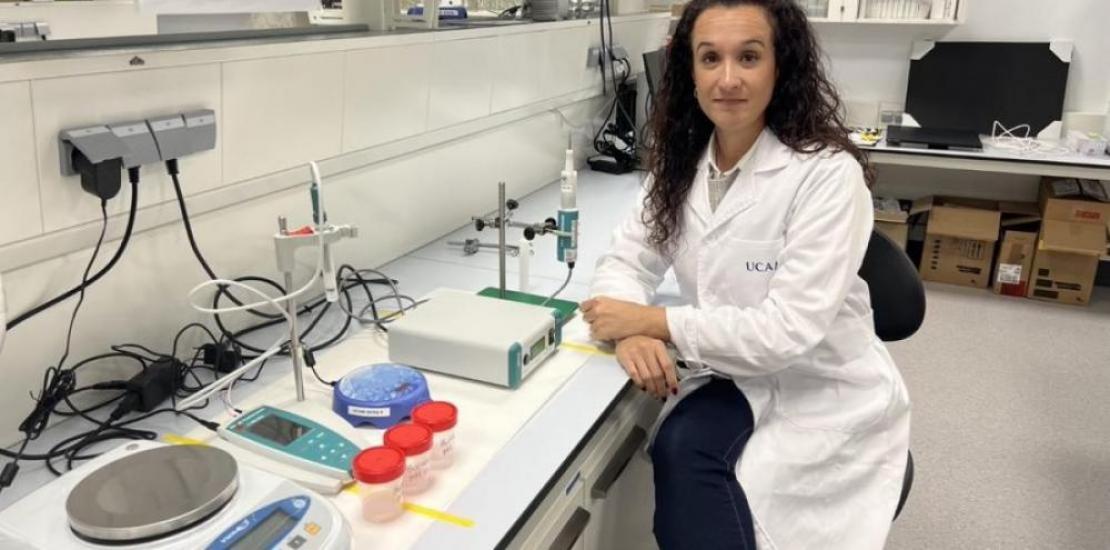María Cuartero, honoured by the Royal Spanish Society of Chemistry
The director of UCAM-SENS has been chosen as one of the four best young researchers leading research groups in our country
Murcian researcher María Cuartero Botía, director of UCAM-SENS (the first unit of chemical sensors in Europe), has been honoured by the Royal Spanish Society of Chemistry (RSEQ) among the four best leading researchers in the field of chemistry in Spain in the year 2024.
‘I am very excited for this award, which also recognises the work of my research teams at UCAM and KTH (Sweden). The feeling of gratitude is truly profound, from the Royal Spanish Society of Chemistry to each person who believed and believes in the potential of the research we are developing on chemical sensors. It is a unique opportunity that implies excellent national visibility of our results and scientific philosophy.
This award, which will be presented during the Symposium of Young Chemical Researchers (RSEQ-JIQ), is a prestigious recognition, in addition to other awards received by the director of UCAM SENS in recent years. Among these recognitions, her appointment as president-elect of Division 1 of the International Society of Electrochemistry, a position that highlights her experience and leadership in the field of electroanalysis; her appointment as editor of the renowned scientific journal Analytical Chemistry, of the American Chemical Society, consolidating her reputation as a leader in scientific research worldwide; and the award as 'World's Best Young Researcher of the Year 2022', granted by the journal Chemosensors for her brilliant research career, stand out.
During her almost two years of research at UCAM, Dr. Cuartero and her team have developed several types of pioneering sensors, covering all manufacturing processes, both chemical as well as electronic. UCAM-SENS has recently tackled the measurement of lactate in sweat to improve sports performance, the measurement of phosphate in water to optimise the fight against pollution, and the monitoring of various parameters of the human body, such as sodium or chloride, through the use of microneedles, in order to know the clinical status of the patient in real time without the need for invasive blood tests.




